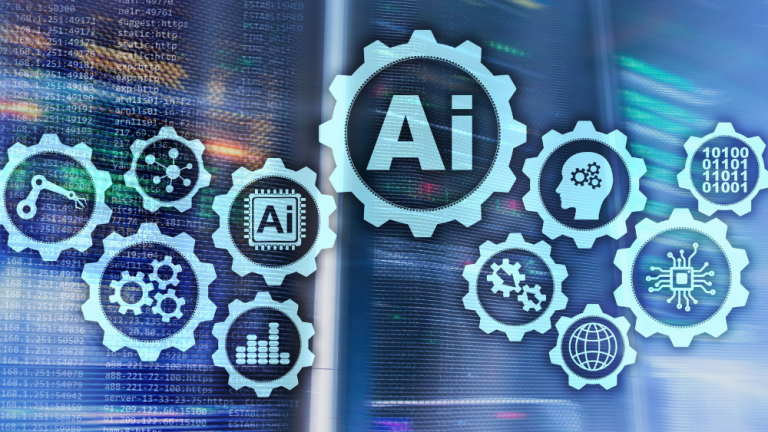Artificial Intelligence (AI) has drawn the lion’s share of attention and investment in the venture capital landscape. In the first quarter of 2024 alone, AI startups secured over $11 billion in funding in the US, capturing almost 60% of all venture capital deployed with much of this attention focused on the AI tech stack – hardware, foundational models, infrastructure, and applications. This surge, up 40% from the previous year, makes it tempting for any startup or future founder to claim an AI focus.
However, it’s challenging for the human mind to grasp the rapid advancements enabled by Moore’s law that have led to where we are today. Unlike the transition from 8-bit to 16-bit computing, marked by the transition to graphical interfaces, the pace of progress in AI technology is so staggering that only a few rare experts truly understand the nuances between, for example, Nvidia’s S100 and A100 chips, which power much of this innovation. Two years ago, startups were disrupting incumbents in late-stage or public markets. Today, startups are disrupting other startups founded just a month or two ago, creating a sense of FOMO mixed with uncertainty for both founders and investors.
In other words, focusing on core AI may not be the solution for every founder. Instead, amidst this AI-driven fervor, these digital advancements have revealed key tailwinds that the other 40% of venture funding can leverage:
- Standardization Across LLMs: As large language models (LLMs) continually improve and standardize, proprietary data used to train models localized or edge models becomes the key differentiator.
- Speed of Solution Development: The rapid development and deployment of solutions allow founders to cheaply and quickly build high-quality solutions for more niche problems. The driver of success will be distribution and the founder’s ability to gain market traction. During that scaling, partnering with the customers to define their next problem set will build the product roadmap for the founders.
There are substantially sized, occasionally overlooked sectors that operate in the real, physical world that have opportunities today that are fit to benefit from these tailwinds in the near term. Founders are especially well-positioned to utilize the technological advancements we are seeing developed at unprecedented speed because there is a level of nimbleness that startups bring to these industries that incumbents haven’t historically operated with.
- Logistics: The application of AI in logistics is transforming the industry by optimizing routing, inventory management, and delivery processes. AI-powered predictive analytics can forecast supply chain disruptions, allowing companies to mitigate risks proactively. Additionally, AI-driven autonomous vehicles and drones are beginning to reshape last-mile delivery, promising to significantly reduce costs and improve service efficiency. Startups have a golden opportunity to develop AI solutions that enhance supply chain visibility and responsiveness, which are critical in today’s fast-paced market environment.
- Real Estate: AI is enabling smarter market analysis, property management, and customer service. Machine learning algorithms can analyze vast amounts of proprietary and public data to identify investment opportunities and predict market trends with greater accuracy. AI can also automate routine tasks, such as tenant screening and property listings, and enhance the user experience through personalized recommendations and virtual property tours. Furthermore, real estate transactions, which rely heavily on documentation, brokers, and third-party services, can be streamlined significantly. In the case of brokers, luxury and high-end aspects will still require human touch but margins can be benefited by new waves of automation.
- Energy: The energy sector stands to benefit immensely from AI, particularly in optimizing grid management and facilitating the shift to renewable energy sources. AI can help predict energy demand patterns and integrate diverse energy sources more efficiently into the grid. Moreover, AI solutions can monitor and adjust the energy output of renewable sources in real time to maximize efficiency and minimize waste. Startups can leverage AI to develop smart grids, energy management systems for homes and businesses, emissions and leaks monitoring, and predictive maintenance tools for energy infrastructure.
- Manufacturing: AI is revolutionizing manufacturing through smart automation, quality control, and supply chain management. Advanced machine learning models can predict equipment failures and schedule maintenance to avoid downtime. AI-driven robotics are increasingly used for tasks that require precision and reliability, improving production efficiency and worker safety. Startups have significant opportunities to create AI tools that help manufacturers optimize production processes, reduce costs, and enhance product quality. Track and trace technology will see leaps in advancements with AI, allowing for more granular measurement of compounds and alloys, for example.
In essence, while AI undeniably dominates the technological discourse, it’s not the only path to success. There’s significant potential for founders who look beyond the digital landscape to the tangible, physical challenges industries face today. By focusing on these real-world problems, startups can explore a less crowded but potentially more rewarding opportunity space, particularly when they can apply these digital proliferations with practical solutions that customers are willing to pay for today. Let’s not forget that 46% of the annual revenue from S&P 500 companies last year came from companies in these four sectors. AI and Big Tech are grabbing the headlines today, but don’t overlook what’s happening on each side of this connected, digital and physical ecosystem.


